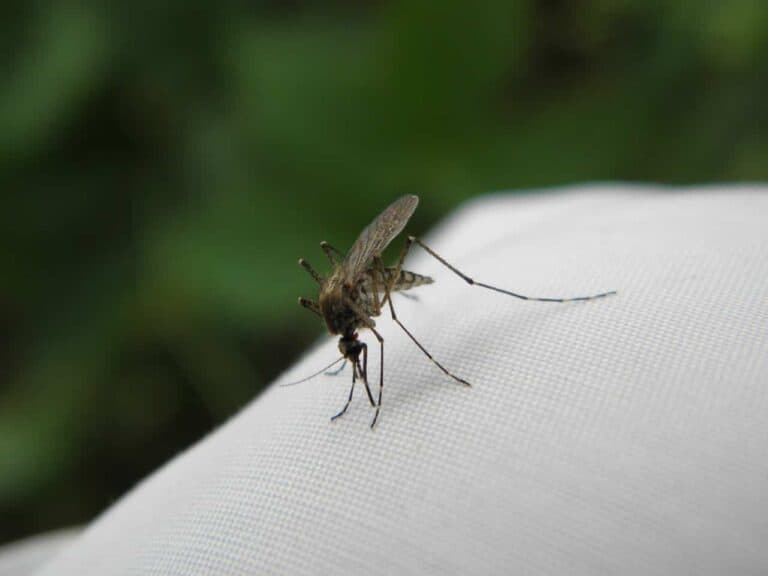It’s that time of year again – and I am back in my least-favorite position.
Don’t know if you are like me, but I am usually the first in the crowd chosen by those annoying gnats or biting bugs like mosquitoes and even horseflies (they have a stinging bite).
So I am pulling out my plant-based, natural bug repellant and using it – liberally. Without concern about chemicals or toxic issues.
Oh yes, I used the “deep woods” level of DEET-based insect repellents for years – mostly because I was the juiciest of the bunch, obviously. I didn’t care for the smell and it was icky on the skin for a bit, but in my younger years “the more chemicals, the better” was our thinking.
Later, as concern for the environment, and discovery of the negative effects of chemicals on and in our body became known, it is no surprise that a large chunk of the population believe today that DEET is hazardous to your health. As I recently checked it out further, there are pros and cons (no surprise there).
So why are so many convinced it is dangerous? One source suggested it could be because it has a strong chemical odor — I can verify that. Others may conflate DEET with DDT which is a potent insecticide that was banned in 1972 due to environmental toxicity and human health risks.
In checking with the Consumer Reports website, I learned that an estimated one-third of the U.S. population uses deet-based products to fend off biting bugs like ticks and mosquitoes (this is an EPA stat). The article asked if DEET was safe.
My extraction of info from Consumer Reports:
- In 1998, an EPA assessment turned up 46 seizures and 4 deaths potentially linked to deet exposure.
- Since 1960, EPA estimates incidence of seizures with potential link to deet was 1 per 100 million uses.
- Key – most of the reported cases of problems involved a misuse of deet products –ingestion or “dermal application not consistent with label instructions”.
- Vast majority of cases of DEET toxicity are mild, said another “seminal analysis” which looked at 9,000 deet-related calls made to poison control centers between 1985 and 1989. Most were treated at home or referred to health centers with 80% discharged after examination. A 2nd analysis of more than 20,000 calls between 1993 and 1997 found similar results.
- Pregnant women and children studies had deaths and scary incidents reported but the overall summary was the risk was similar to the rest of the population.
OK, I ask myself, do I want to take the risk? I am pretty chemical-adverse anyway, so is there an alternative? Because it is not just that bug bites are annoying but they also can transmit diseases. I want something that works, but I don’t want the risk of the harm of chemicals.
Well, guess what! The Consumer Reports article reported that “oil of lemon eucalyptus” is another active ingredient that has done well in their tests. OLE is registered with the EPA as a biopesticide, meaning that products containing this ingredient are subject to at least some testing for safety and efficacy. (not recommended for children younger than 3 because of lack of studies in this group)
Now they are supporting what I have preferred for the last several years since I learned more about plant-based and natural alternatives. The fewer chemicals and toxic matter I have going into or around my body, the happier I am and less I worry about what it is doing to my system.
I found one point to be quite affirming of my stance. As one report explained, DEET doesn’t kill the bugs, but protects against them by keeping them from landing on your skin or clothes, or from biting if they do land. There is not clear understanding of how it works, but most say it masks the odors that attract mosquitoes to humans, or it may confuse their odor-sensing abilities and maybe it just registers as an odor to be avoided.
Why is this affirming of my stance? There is a natural way to do the same “odor” trick.
Years ago, when I was introduced to natural supplementation, I learned about essential oils. I went to workshops, practiced applications, and attended training sessions. I devoured the “Foundational Aromatherapy” book compiled by multiple experts (Leiann King, Brenda Wright & Amanda Reynolds).
I’m no expert, but I just call myself a “convert”. If I can address a problem with an essential oil as well or better than store-bought (or pharmaceutical) items, I will do it!
In case you would like to know more, I did a 2-part training in previous blogs — 009 Essential Oils Part 1 – Candy McCune and 010 Part 2: Essential Oils – Candy McCune
So here is my offering to you – 2 essential oil recipes which are Bug Repellants – a natural and healthy way to “repel” those pesky and biting bugs (one is a spray and one is a rub-on). I use only 100% pure therapeutic essential oils since they have no additives. And yes, they use the eucalyptus oil! Remember the reference above to this oil?
Another great thing is that once you buy the oils, you can use them for a long time because it is only a few drops of each that go into the mix. And it is “on hand” ready for when you need to mix another batch.
So, click on the download HERE – print and enjoy them.
Here’s to you and me having pesky bug-free days ahead!



